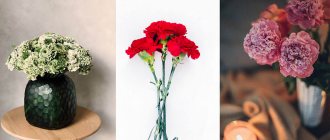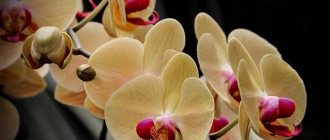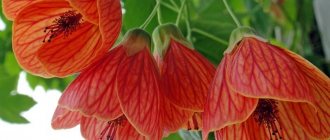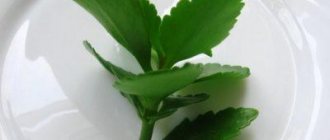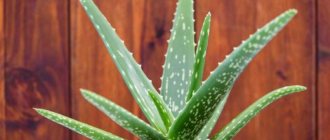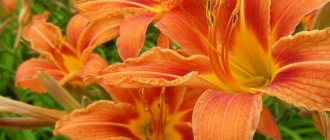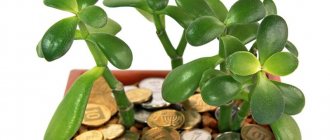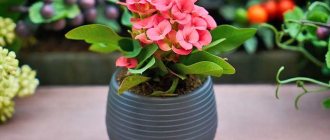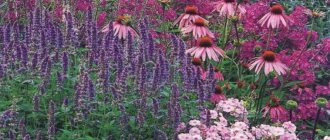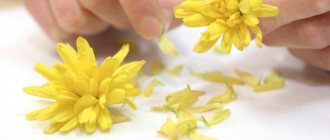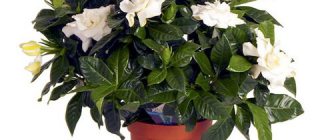With the help of flowers you can simply and beautifully express your feelings and emotions. A bouquet of flowers will lift your spirits, even if it is intended for a man. Flowers can induce joy, happiness, reduce stress and negative emotions and help cope with them. The positive impact of flowers will be especially effective if they are unusual and original. So, the most beautiful flowers in the world, for which you don’t need to go to exotic places. They can be purchased in our online store.
Roses
The rose is the standard flower, which has remained a universal gift for centuries. You can give roses either as a symbol of love to a loved one or to a person whose floral preferences are unknown.
Rose attracts with the naturalness and sophistication of the outlines of the inflorescences and its luxurious, delicate aroma. A rich range of shades will allow you to choose a delicate bouquet or a bright, extraordinary composition.
Protea
What gives proteas their unusual appearance is not the flowers themselves, but their leaf wrappers, painted yellow, pink, blue-pink.
This plant is considered one of the most beautiful on Earth among those that are capable of blooming. Its homeland is the African continent. An amazing feature of this exotic flower is that it contains an incredible amount of nectar, for which the protea was nicknamed the “barrel of honey.”
The flower can be propagated and grown in Russian conditions. In a mild climate, the plant can become a garden perennial, and in a more severe climate it will decorate a greenhouse or at least a windowsill. To do this, it is important to provide the protea with warmth, plenty of light and a flow of fresh air.
In South Africa, protea is the most popular and beloved plant. One of its species, the royal protea, is considered the symbol of South Africa.
Hydrangeas
Volumetric airy flowers are distinguished by their unusual lightness, beauty and varied colors. A bouquet of hydrangeas is guaranteed to give joyful emotions to its recipient, giver and, of course, the florist who created the flower arrangement.
Hydrangeas go well with other flowers, so they can be used both for single compositions and for combined bouquets. They are often included in wedding floristry for the bride's bouquet and hall decoration.
Amorphophallus titanica
During flowering, the amorphophallus ear heats up to 40°C
Another name is “devil’s tongue.” Once upon a time it could easily be found in the sultry forests of Indonesia, today it is a real rarity. The plant can grow up to 2.5 m in height and weigh more than 50 kg. This beauty is fragrant with the “aroma” of rotten fish, which, combined with its gigantic size, makes it impossible to grow amorphophallus in a summer cottage. And such flowers do not grow in the climatic conditions of the Russian Federation, therefore, to see the “devil’s language”, you will have to go, for example, to Sumatra.
The lifespan of amorphophallus titanica is 40 years, but during this time it blooms only 3 or 4 times.
Ranunculus
These are garden ornamental buttercups with a beautiful unusual name. At first glance, they resemble small peonies, when half-opened they look like roses, and fully blossomed inflorescences resemble poppies. The inflorescences are distinguished by terry lush rosettes and a rich variety of shades from discreet pastel to rich and bright. They look equally impressive in mixed bouquets and voluminous mono-arrangements. Ranunculus are not capricious after cutting; they continue to grow in water and bloom completely.
Decorative poppies: a simple craft for decorating a festive table
These flowers are very easy to make. To do this you will need to prepare:
- double-sided colored corrugated or velvet paper. But thin tissue paper will also work, which must first be painted with watercolors in red, pink, soft pink and several shades of yellow and orange;
- yellow cardboard for the center of the flower;
- thin aluminum wire;
- scissors, a simple pencil.
To avoid the hassle of cutting out each flower detail separately, proceed as follows. Cut out approximately 6x6cm squares from all colors of paper and stack them in a stack of 4-5 squares together. On the topmost square, draw with a simple pencil an irregular (slightly wavy) rounded shape of the future bud. Cut out the flower. You should get 4-5 flowers at a time. The circles can be the same size or completely different in diameter.
Cut out a circle from cardboard - the middle of the flower. Cut stems 15-25 cm long from the wire and make a decorative leg-stand for it, twisting the wire so that it can stand on the table.
Place 4-6 petals on a wire, a cardboard center and bend the top of the wire. To prevent the flower from sliding along the wire, make a small retainer from the bottom using tape or a drop of hot glue.
Hippeastrum
The flower received its unusual name due to its original inflorescence. Translated from Greek, it means a combination of the words “horseman” and “star”. Large flowers reach up to 15-25 centimeters in diameter and have a long stem. This is a rare exotic species, but it is successfully grown in greenhouses. Hippeastrums of beautiful and varied shades are used for single compositions and mixed bouquets.
Volumetric paper flowers
From any paper you can create voluminous flowers with lush heads. These corrugated paper flowers will look like living plants.
Peony
Making a lush peony is not so easy, but the result will be a real masterpiece. To make it even more alive, its petals can be tinted with a pencil.
Manufacturing instructions:
- Using the patterns, cut out 35 petals. You can use a simpler method: cut out 6 circles of 2 sizes. Fold each circle into six and cut along the fold lines.
- Trim the ends of the circles figuratively, forming a wavy line.
- Use your fingers to crimp the paper, giving the workpieces a natural shape.
- Prepare the wire. Wrap it first with small petals, then with larger ones. Secure the parts with threads.
- Make sepals from green material.
At the end, you need to straighten the entire craft, giving it splendor.
star flower
A star flower can look like any plant: lily, carnation, aster. It is simply folded out of paper.
Creation order:
- Fold the square in half. Bend the corners of the triangle upward.
- Bend the bent corners again lengthwise and straighten them.
- Fold the edges of the small triangles inward.
- Fold the workpiece and straighten it.
- In this way, make 5-7 modules that need to be glued together.
Dahlia
Dahlias will become an original paper craft.
Procedure for making dahlia:
- Cut out 5 circles of different sizes.
- Fold the circles several times into a narrow cone.
- Cut an oval-shaped petal from one edge. Make a slot in the center of the cone.
- Spread the circles. Make slits between the petals.
- Bend long parts with the edges of scissors.
- Attach a core of paper fringe to the wire. It needs to be created from a long, narrow rectangle.
- String the circles one after another and glue them.
The gorgeous dahlia is ready.
Chrysanthemums
Paper flowers in the form of chrysanthemums are easy to make, so this craft can be entrusted even to children in kindergarten from 3 years old. This product will be a clear example of how you can make a three-dimensional figure from a sheet of paper.
The process of creating a chrysanthemum:
- Cut out a rectangle measuring 8x30 cm from any paper. The size may be slightly different. The width of the rectangle should be slightly larger than the final diameter of the chrysanthemum. The longer the blank, the fluffier the chrysanthemum will be.
- Fold the rectangle like an accordion. Cut thin fringe on both sides. Curl the ends of the fringe with scissors.
- Wrap the wire in green paper. Wrap the stem around the middle of the paper fringe.
- Fluff the fringe around the center in the form of a fluffy pompom.
Advice. For chrysanthemums, you can take old magazines.
poppies
Poppies will be a wonderful decoration on the table. They are easy to make.
Operating procedure:
- Cut out 5 hearts of 2 sizes from colored paper.
- Make a core out of wire and black paper.
- Glue the petals to the blank.
The flower is ready.
Lilies
Lilies have graceful, elongated petals, so creating them is not so easy. But it will turn out to be a beautiful masterpiece.
The procedure for creating lilies:
- Using the pattern, cut out 5 petals.
- Draw the center of each petal with pencils, forming veins and spots.
- Fold the parts in half and straighten them out.
- Use scissors to curl the patterns.
- Form a stem from the wire, smoothly turning into a pistil.
- Place the petals around the pistil and secure with thread. Decorate the sepals.
Carnations
Carnations are a necessary attribute of any patriotic holiday. Therefore, learning how to make them will be useful. They can be used to decorate military postcards with planes, tanks or soldiers.
Creation order:
- Cut out circles or rectangles from crepe paper. Circles are needed for three-dimensional appliqué on a postcard. Rectangle - for a plant in a bouquet.
- Make cloves around the perimeter. Give the cloves a slightly wrinkled, natural look.
- Place the pieces together. Stick on the base.
- If you plan to have a plant on a leg, then wrap the lower part of the rectangle with wire and drape it with green material.
- Fluff the plant, giving it a voluminous shape.
Rainbow roses
A fantasy option for lovers of creative and unusual bouquets. Rainbow roses will be the best gift that will cope with a bad mood and add joy, smiles and positivity.
Interestingly, rose buds painted in all the colors of the rainbow were obtained without the use of genetic modification. Dutch flower growers achieved an unusual rainbow effect. The complex technology involves passing colored water through the stem of a white rose.
Changes in spring motifs
The hybrid species of dahlias is represented by diverse forms of inflorescences with unexpected colors and bright colors. Flowering begins in June, dahlias bloom until the end of autumn. Turkish carnation is a perennial divine flower, which has all sorts of bright colors, a pleasant aroma, and is grown in lighted places. Planting begins in June, and abundant flowering begins in the second year and lasts for more than a month.
Summer phlox blooms in July with the onset of hot days. Daisies are considered unpretentious plants, planted in the garden and decorate flower beds. In August, all kinds of chrysanthemum colors will delight you with their beautiful flowers. Bright colors in the flower garden on autumn days will calm the nervous system. Chrysanthemum flowers in the flower garden are preserved until deep frost.
The following flower names are considered the best autumn plants:
- Craspedia is distinguished by the golden balls of its flowers, which are held by the stems until the onset of frost.
- Allium is considered a dried flower; the spherical inflorescences have a variety of colors. Flowering begins in the last days of spring and persists throughout the entire season.
Other crops can be included in the assortment of flower crops to ensure continuous flowering. For example, such as: Asters, Alstroemeria, Begonia, Cornflowers, Carnations, Hyacinths, Gladioli, Hydrangea, Crocuses, Callas, Lilies, Lotus, Poppies, Mimosa, Daffodils, Orchids, Peonies, Snowdrops and Scilla, Roses, Daisies, Lilacs, Tulips. The color set has a wide range. Thanks to information about different flowers, a bright and fragrant variety is planted in flower beds.
Lilies
Large and exquisite flowers are distinguished by a varied palette and a subtle pleasant aroma. Spectacular inflorescences on long elastic stems surprise with their regularity of shape and aristocracy. Used for making flower arrangements and interior decoration. Lilies are especially popular for creating wedding bouquets and decorating the hall. They are considered a symbol of sincere love, purity and purity.
Lilies look spectacular on their own, but also go well with other flowers. For example, roses, gerberas, peonies.
Templates
The simplest blanks to work with are a circle and a rectangle. But to make the plants look more natural and picturesque, it is better to create them from individual petals. For this you will need templates and patterns.
Features of working with patterns:
- It is better to print stencils in advance from thick Whatman paper.
- Each plant will require a set of patterns.
- To prevent the sets from getting mixed up with each other, it is better to make them from colored Whatman paper and sign them.
- For ease of assembly, all parts should be numbered.
- It is better to write on each part how many such parts will be needed.
This way the template will turn into ready-made instructions for creating a plant.
Calla lilies
Elegant and graceful flowers on thick stems resemble the neck of a swan in appearance. The unique shape of the inflorescence resembles a goblet or bowl. Callas come not only in snow-white, but also in other beautiful shades. They are often used to create wedding floral arrangements and delicate bouquets for special occasions. But it is worth keeping in mind that despite their unusual beauty, calla lilies are poisonous to pets.
Egret Orchid
Many breeders are developing new varieties of this type of orchid with different petal colors, but white is considered the most common.
In the Far East, in Primorye and the Amur region, a miracle flower grows that resembles the delicate feathers of a white bird. It is also found on the Japanese islands. “White Heron” is popular in the Land of the Rising Sun, it is actively bred, but in the natural environment the plant is becoming increasingly rare.
It is believed that it is not difficult to grow an exotic orchid at home, in a flower pot. The main thing is to provide high soil moisture during the active period, and during the dormant season, make sure that the soil does not dry out by adding water on time. However, experts say that only an experienced gardener can get a worthy plant of rare beauty from a seed.
Recent Entries
Lilac perennials that are beautiful, compact and do not crowd out other plants Why when buying seedlings you should not take the sellers’ word for it and how to determine the age of the plant using 3 signs Tomato seedlings have turned purple or whitish: why the color has changed and how to save the plants
Exotic plant bushes
The Philippine islands with tropical hot sun encourage the growth of climbing vines. A jade vine grows from which gorgeous 2-meter tassels hang, reminiscent of the colors of sea waves. Pollination of such plants occurs only by moths and bats.
Wild Orchid flowers amaze with their unique ability to reproduce in difficult natural conditions. The seeds fall into the ground, where they are helped to survive by the fungi on which they feed. Orchid flowers amaze with their splendor.
Camellia red is a rare plant whose flowering petals have a very bright red color. Only two copies have survived throughout the world. One variety grows on the soil of New Zealand, where it is carefully protected, and the second greenhouse variety is grown by the British.
Dahlia
Another beautiful flower from the vastness of Mexico, namely from its mountainous regions. Growing in the wild, it has two flowers - male and female. In the middle of the inflorescence there are fruit-bearing tubular flowers, and non-fertile flowers at the edges. This form is difficult to find in ornamental gardens, because breeders have worked for years to transform the middle flowers into non-fertile ones. This made the inflorescences fuller and denser, giving them a bright and variegated color palette. There are about 40 varieties of this plant.
African Hydnora
This plant can be safely used in horror films. Hydnora is a parasitic flower that grows in Africa. It attaches to the roots of plants, feeding from them. At the same time, the gidnora hides underground. Only if there is sufficient rainfall in the desert does it appear on the surface and bloom. This attracts beetles, which carry out pollination.
However, she needs insects not only for this. Hydnora is a carnivorous plant that feeds on beetles. It attracts insects with the smell of rot. At the same time, it itself is actively consumed not only by living creatures (jackals, baboons), but also by African tribes. Medicinal potions are prepared from its roots.
Dicentra is magnificent
Thanks to the shape of a heart split in half, the name “broken heart” is firmly attached to the dicentra flower. The inner petals, stamens and pistils, are hidden under the outer petals. And the porous leaves have a gray-green and light green tint. The flower is native to North America and East Asia. The genus Dicentra includes 20 species, both annual and perennial plants, reaching a height of up to one meter. Although dicentra is a frost-resistant and unpretentious plant, careful care and fertile soil can turn it into a powerful, abundantly flowering bush.
Rafflesia
This flower weighs about 10 kilograms. It is a parasitic plant that has no roots, leaves or stem. Therefore, Rafflesia cannot carry out photosynthesis on its own. It receives all the necessary substances from the plants on which it parasitizes. Most often she prefers vines.
A giant bud, filled with liters of water, blooms right on the ground and “delights” those around with the smell of rotten meat. However, the lifespan of Rafflesia is very short - only 2-4 days.
